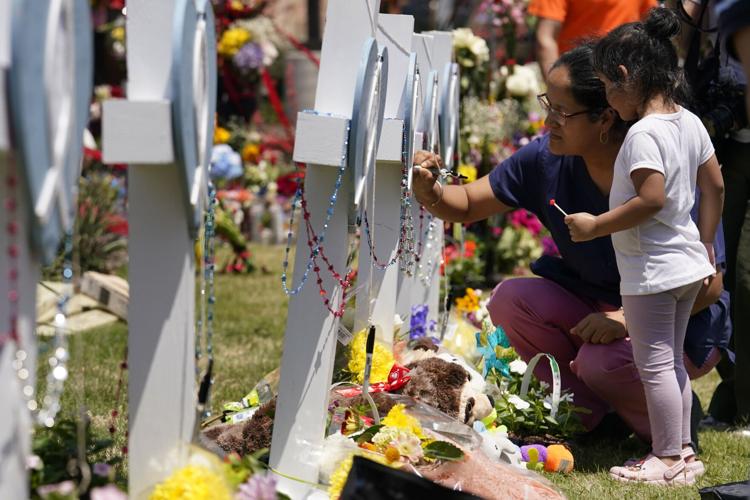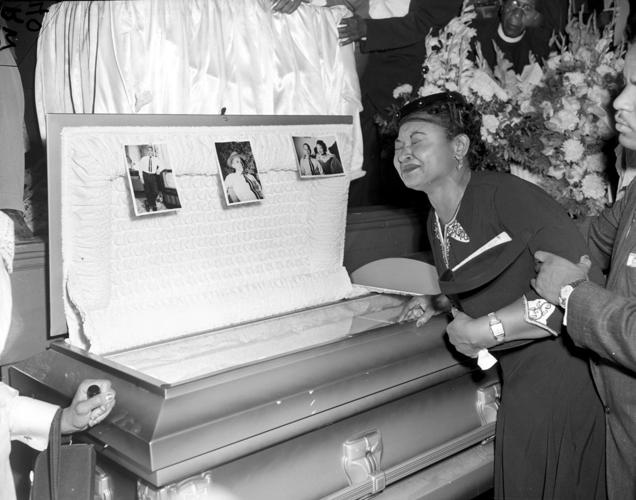It's not yet mid-May and we've had more mass shootings this year than ever. This is a distinctly American phenomenon.
That's according to the Gun Violence Archive, a not-for-profit that regularly monitors gun violence in the United States. GVA regularly posts gun-related violence data on its website, on Facebook and on Twitter. It's free for the looking.
I look regularly, and I'm regularly startled.
But not nearly as startled as I was after a heavily armed gunman shot and killed eight people and injured seven others on Saturday at a mall in Allen, Texas, about 30 minutes north of Dallas.
"BREAKING: Including yesterday's incident in Allen, TX, the U.S. has now reached 200+ mass shootings this year. The country reached this number on:
- May 15 in 2022
- May 12 in 2021
- June 16 in 2020
- June 30 in 2019
- July 31 in 2018
- July 23 in 2017
- July 22 in 2016"
That's outrageous.
The fact that we had 200 mass shootings in 2016 is shocking. The fact that we continue to watch the number of mass shootings rise faster each year — without any significant governmental action in response — is appalling.
There's no universally agreed-upon definition of "mass shooting." GVA uses a commonly accepted one: a shooting that results in at least four victims injured or killed, not including any shooter.
We've had mass shootings in Louisiana, and we have plenty random and targeted shootings. Some have even made national news.
Many Americans insist the Second Amendment, which grants people the right "to keep and bear arms," should be unfettered, with no government interference or oversight. They believe that no matter how bad things get, government cannot limit individuals' access to practically any kind of firearm.
I disagree. And I know many gun owners who feel likewise.
Reasonable gun measures don't violate the Second Amendment. Many states require concealed-carry permits. We can't carry guns on commercial flights.
But that's not enough. We must do more.
Retired Army Lt. General Russel Honoré got pretty heated after the Allen mass shooting. He tweeted a picture of the shooter on the floor with blood streaming from his head. In part, his tweet read: "Crying Damn Shame! Think #MSM need to post KIA/WIA daily like we used to see during Vietnam! W pics! Ban the @AR15."
The photograph didn't portray any of the victims. It showed the shooter after an officer at the mall on an unrelated call saw what was happening and ended the carnage.
I agree with Honoré. #MSM, or mainstream media, should publish more disturbing photos after mass shootings. Some historic but disturbing photographs have changed the world.
Black teenager Emmett Till, 14, was murdered by White men for something he didn't do — flirting with a married White woman in a store. They mutilated him. His mother wanted the world to see what they did to her son.
Jet, a Black weekly magazine known to readers and fans as "The Jet," published a photograph of Till's disfigured face and body in his casket. It was ugly. It hurt. Yet it inspired those in the civil rights movement — and it got the attention of elected officials who had ignored the violence and injustices happening in Mississippi.
Associated Press photographer Eddie Adams won a Pulitzer Prize for a photograph of Brigadier General Nguyen Ngoc Loan shooting a Viet Cong prisoner in the head with a pistol, point blank, on a Saigon street. The photo, published worldwide, was dubbed the "Saigon Execution." It made people confront, and turn against, the violence of the Vietnam War.
When 9/11 happened, news people struggled when choosing which photos to publish. Some of us published crushed, falling and dead bodies to show the horror of the terrorists' actions.
It reminds me of when I was young, my parents administered Mercurochrome for bruises, cuts and injuries. It hurt like hell. But it worked. The antiseptic is off the market now, but the principle applies here.
Mass shootings make me grieve, especially when they involve children. I wouldn't want a picture of my child or loved one published or aired. That's why most news executives opt-out.
Clearly, the incremental steps we've taken in response to mass shootings haven't worked. Mass shootings and gun violence in general are on the rise. We need to do more.
We need universal background checks, legislation banning semi-automatic weapons (as we did from 1994 to 2002) and other measures to stop this insanity.
Powerful images can change minds.
That's why we need to see more shocking, ugly photos after mass shootings.














